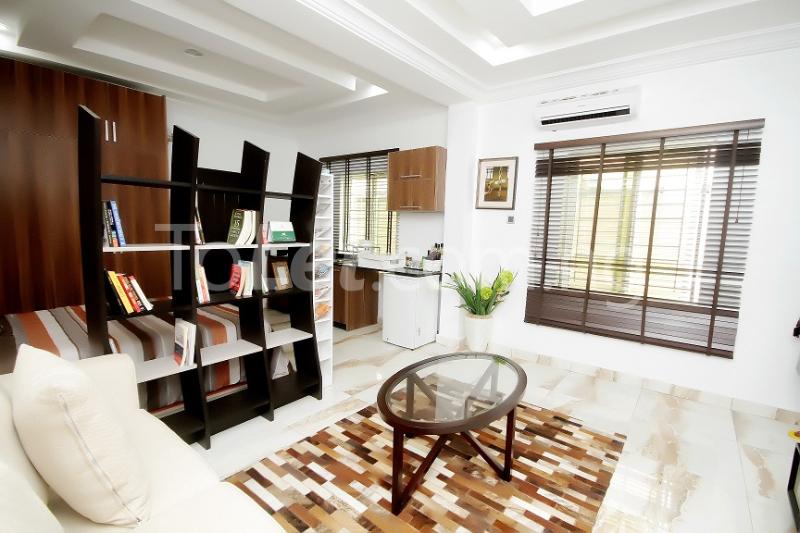The Poor Suffer The Consequences of Lagos Modernization

Efforts by Lagos authorities to turn Nigeria’s commercial capital into a modern mega city have run into controversy after the demolition of an impoverished waterfront neighborhood left 30,000 people homeless.
With the existence of many classy, luxurious private estates and a glittering new city under construction on land reclaimed from the Atlantic Ocean, housing for some of the 20 million people living in Lagos appears to be getting better. But as this dramatic change is underway, many are experiencing the consequences of this rapid urbanization.

The recent was the Otodo Gbame debacle, a poor fishing community in Lekki, which was completely demolished in early November as part of the growing determination to remove shanty towns in the state.
Between November 9 and 11, the district was set ablaze then not to long after, bulldozed, reducing tens of thousands of homes to piles of smouldering wood and corrugated iron.
“At least three people died when armed police moved in with bulldozers, setting fire to the area and chasing some residents into the nearby lagoon.” the locals said. According to them, they were given no warning.
ALSO READ: Lagos State Government Clarifies Demolition of Illegal Structures
With residents now homeless, with nowhere else to go, they huddle together miserably under makeshift structures built out of rubble.
The Otodo Gbame are mostly from the ethnic Egun tribe. They trace their roots to Benin but say they have been living in Lagos for over a century but like the vast majority of the city’s poor, they do not have the title deeds to prove it.
The residents accused the state authorities of conspiring with a prominent Lagos family to seize the land and sell it to the highest bidder.
“They are not happy that we the poor are living close to them.
“Each time, they look through the windows of their mansions and see us, their anger rises,” Toshun Pascal, a pastor in the community, told AFP.
“We are going to fight this injustice with the last drop of our blood.”
Otodo Gbame used to lie between upscale neighborhood Lekki Phase 1 and Elegushi housing estate, a very exclusive area.
Pascal said more than 20 residents, including the community leader, had been detained for weeks “for instigating the violence.”
The Lagos authorities have however dismissed accusations they ordered the demolitions, claiming a fight between the Egun and their Yoruba neighbors caused the fire which burnt down the community.
ALSO READ: Does The Nigerian Government Housing Policies Only Favor The Elites?
They said police only arrived on the scene to restore order and ensure that “the arson did not spread.”
Governor Akinwunmi Ambode had in October hinted at a plan to demolish waterfront shanties in a move to rid the city of criminals, who hide there but Amnesty International warned that such a move would risk leaving tens of thousands of people homeless.
And after the fires, the London-based watchdog said the community was “deliberately set alight”, demanding an independent inquiry into the “forced evictions”.
“Lagos State Government is trying to evade its responsibilities to Otodo Gbame residents by denying involvement in the state’s biggest forced evictions in recent times,” Amnesty said, insisting that those responsible be prosecuted.
With Lagos having a history of demolishing entire neighborhoods, one has to raise eyebrows to the sudden trail of events.
In 1990, the authorities demolished Maroko, a shanty town in the suburb of Victoria Island, forcing some 300,000 out of their homes. On the site where it once stood, now rests a popular South African shopping mall with international chains that caters to the city’s elite.
ALSO READ: Why The Lagos Rent-to-Own Scheme is Genuine
Noah Shemede, director of a floating school in Makoko, another waterfront neighborhood in Lagos, said residents are living in fear.
“We don’t know when the caterpillars will roll in,” Shemede told AFP. “It’s Otodo Gbame today, it can be Makoko tomorrow.”
Government plans to build 1,000 new flats would not help those left homeless, Shemede said.
“Where will a poor fisherman get 3.5 million Naira ($11,000 dollars) to buy a flat?” he said, indicating that a fisherman’s monthly wage is around 15,000 naira a month — the equivalent of $47 (45 euros).
Building experts say hundreds of thousands of people are in need of shelter in the city and are urging the government to provide affordable houses for the poor.
Even as Lagos is on the journey of making the city one of a kind, authorities should try as much as possible not to neglect the needs of the poor. The government should look out for its citizens no matter the class they belong to and Lagos should not be an exception now, should it?

Source: Daily Mail









